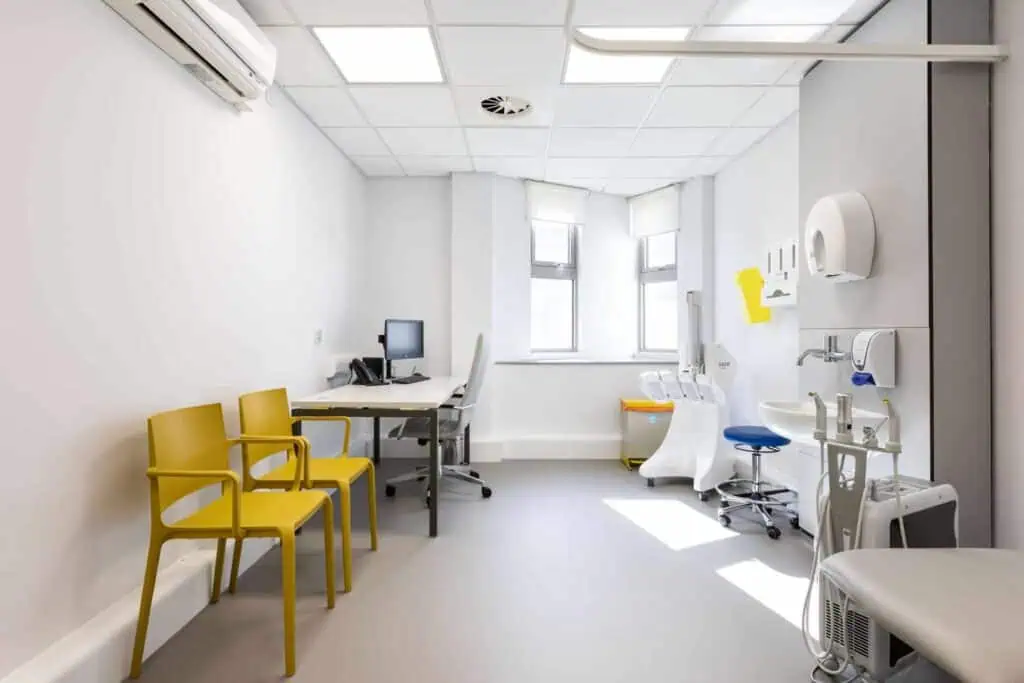Rosacea Specialist Advice
Home » Conditions » Rosacea Specialist Advice
Award winning dermatology service, with over 20 years on experience
Short waiting lists, on some occasions offering same week appointments
Safe environment, in Care Quality Commission approved facilities
Rosacea Treatments Include:
Everything you need to know
Rosacea is a common chronic condition that usually affects the face and worsens if left untreated. One in ten of us suffer from the symptoms of rosacea, particularly in women between 30 and 60 years of age. Rosacea is more common in women, but can be more severe when affecting men. It can be controlled to a degree with long-term treatment.
WHAT CAUSES ROSACEA?
This is not fully understood, but environmental factors, genetics and immune system factors may all be involved. Stress, weather, certain foods and alcohol can aggravate rosacea. For reasons unknown, certain foods including chocolates, bananas, avocado, spinach and pork can be pro-inflammatory. Rosacea can be sun sensitive, but it is not contagious and is not caused by poor hygine.
Rosacea can look like a number of other skin conditions including acne, dermatitis (eczema), lupus and keratosis pilaris.
WHAT ARE THE SYMPTOMS/TYPES OF ROSACEA?
Common associated symptoms include:
- Facial swelling
- Rough skin
- Plaques (raised red patches) on your skin
- Permanent redness
- Irritated or swollen eyes
- Enlarged nose
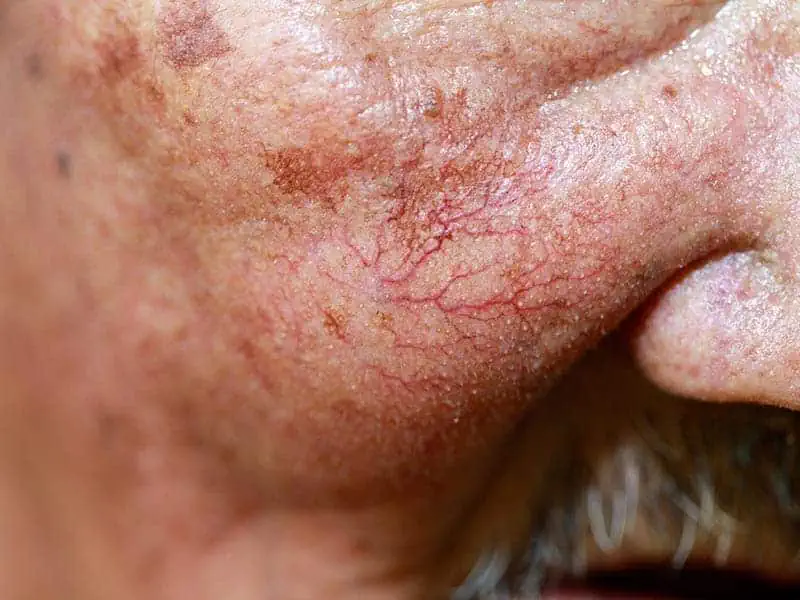
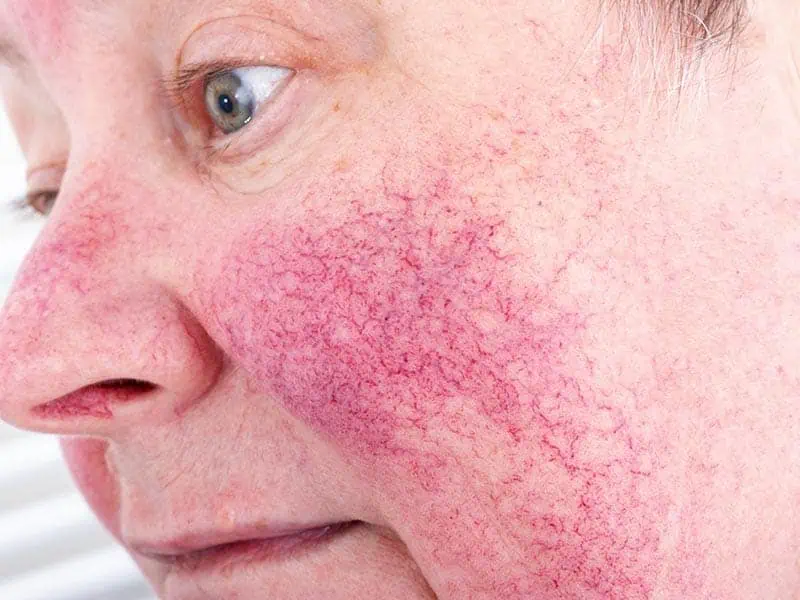
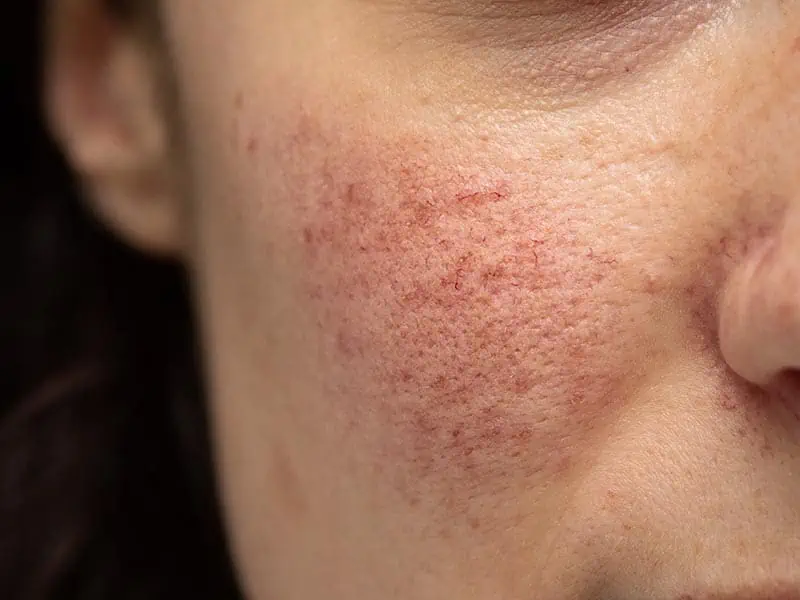
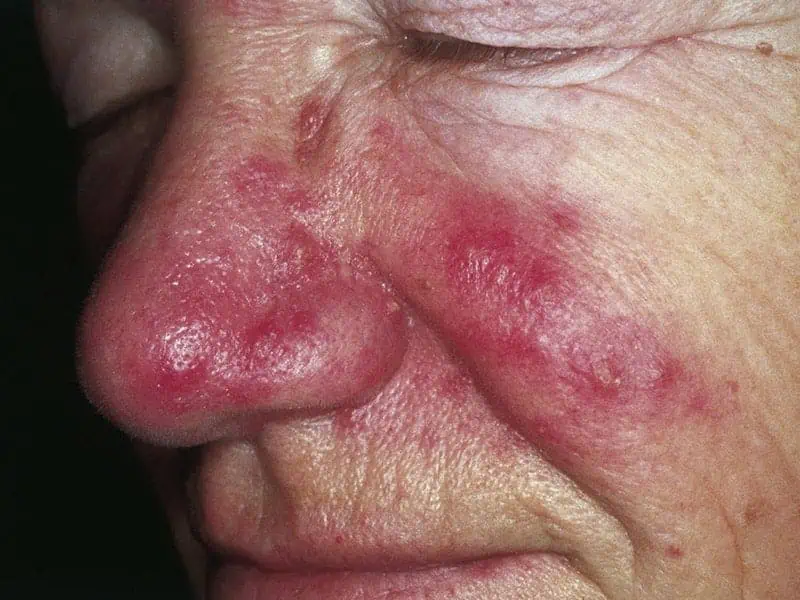
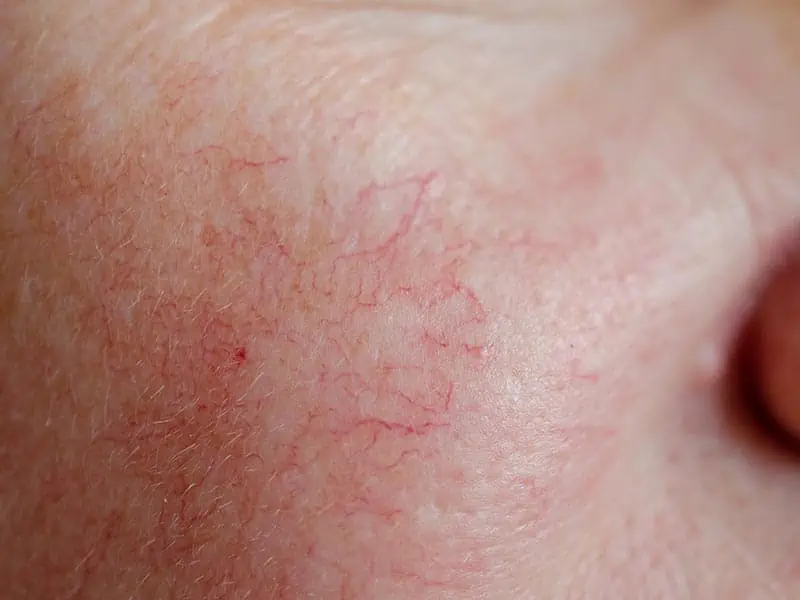
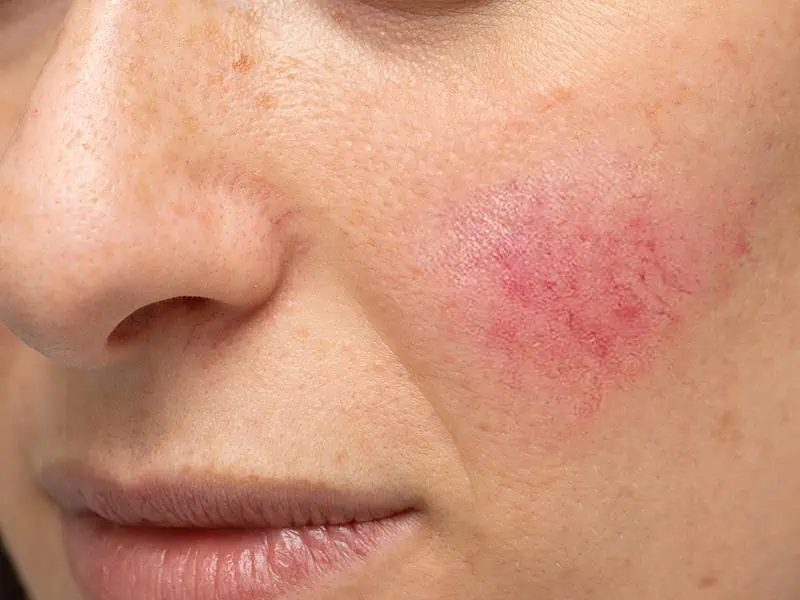
HOW CAN ROSACEA BE TREATED?
Rosacea is often triggered, so identifying the cause can help you to manage your symptoms. It is also advised to wear a high SPF sunscreen, avoid the heat and sunlight where possible, cover your face during cold weather, use gentle skin care products and try to manage your stress levels.
Rosacea cannot be cured but treatments can be used to control the symptoms. These can include:
Laser treatment for visible blood vessels. This is an effective long-term solution for fixed redness. If you are considering having these light treatments, it is important to seek out medically trained laser specialists who offer these treatments. About 85% of patients who have these treatments improve and are very happy with the results.
Oral medication – This is a low dose version of the antibiotic at a level that does not have any antibiotic properties but is specifically licensed for the treatment of Rosacea in the UK. It is very effective in controlling red spots, papules and pustules.
Skin Peels – Skin peels help rosacea by exfoliating the top layers of skin, speeding up skin turnover and preventing pores from becoming clogged with dead skin cells, which can aggravate rosacea. They can also help to reduce inflammation and promote skin healing.
If you have any concerns about the diagnosis or management of your skin condition, a dermatologist will offer you an expert opinion and guide you on the right treatment path.
FREQUENTLY ASKED QUESTIONS
HOW CAN I MANAGE ROSACEA?
Management includes using products for sensitive skin; topical and / or oral products on prescription; and medical grade laser treatments to target the broken veins, redness and flushing.
You should also:
- Apply sun protection – use a product suitable for sensitive skin e.g. Skinceuticals mineral defense SPF 50 or Heliocare range.
- Avoid triggers – these are so variable, but rosacea sufferers know what exacerbates their symptoms.
WHAT ARE THE RISK FACTORS OF ROSACEA?
Anyone can develop rosacea, but you are more likely to suffer if:
- You are female
- You have light skin
- You have sun damaged skin
- You are over the age of 30
- You smoke
- There is a family history of rosacea
WHAT COMMONLY CAUSES FLARE-UPS IN ROSACEA?
- Hot drinks
- Spicy foods
- Cheese
- Caffeine
- Alcohol
- Exercise
- Stress
- Extreme temperatures
HOW MANY TREATMENTS WILL I NEED AND HOW OFTEN?
The number of treatments needed, will depend on the site and the extent of the affected area. Small veins on the face normally disperse just after 1-2 laser treatments at 6-week intervals. IPL may take 4 sessions at 2-week intervals.
DOES LASER TREATMENT FOR SPIDER VEINS AND ROSACEA HURT?
Depending on the type of light treatment used, some mild stinging or burning may be noticed during the procedure, and the area treated may feel hot for roughly 15 minutes after treatment. However, during treatment the skin is cooled, which reduces this stinging sensation and a cooling gel is applied afterwards.
WHAT COMMONLY CAUSES FLARE-UPS IN ROSACEA?
- Hot drinks
- Spicy foods
- Cheese
- Caffeine
- Alcohol
- Exercise
- Stress
- Extreme temperatures
REQUEST A CALL BACK
Please fill in this form and one of our team will give you a call back to arrange a consultation with one of our expert dermatologists.
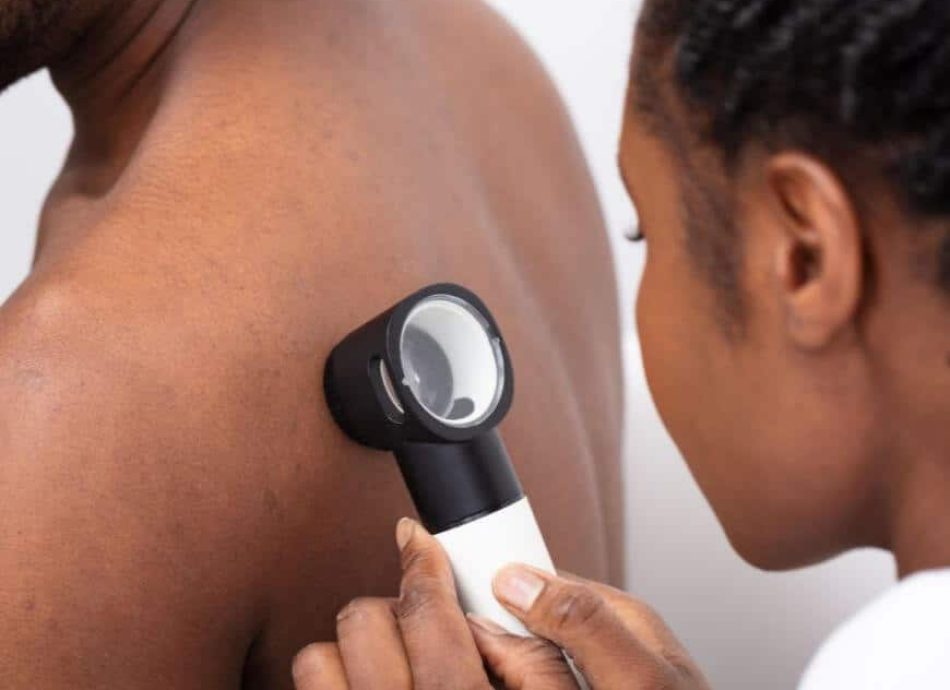
HEAR FROM OUR PATIENTS
WHY Choose STRATUM DERMATOLOGY CLINICS as your rosacea specialist?
Here at Stratum Dermatology Clinics, we understand how skin conditions can reduce confidence and self esteem. Rosacea cannot be cured but treatments can be used to control and alleviate the symptoms.
We work with leading experts in the field of dermatology to ensure you have the best experience and treatment. Stratum Dermatology Clinics are regulated by the Care Quality Commission, are part of the British Association of Dermatologists and are top rated by patients on Doctify so you can assure safe and effective rosacea treatment with us.
rosacea treatment in Cheltenham
Stratum Clinics Cheltenham
5 Ormond Terrace
Cheltenham
GL50 1HR
rosacea treatment in Oxford
Stratum Clinics Oxford
Blackberry Clinic
Ground Floor, The Quorum
7600 Oxford Business Park
Alec Issigonis Way
Oxford, OX4 2JZ
rosacea treatment in Wimbledon and Raynes Park
Stratum Clinics Wimbledon & Raynes Park
Raynes Park Health Centre
1 Lambton Road
Wimbledon
SW20 0LW
ROSACEA INSIGHTS AND ADVICE

A Complete Overview of Understanding and Handling Rosacea: Your Guide for Rosacea Awareness Month 2024
April marks Rosacea Awareness Month, an ideal time to highlight this frequently occurring yet routinely misunderstood skin condition. For the numerous individuals around the globe
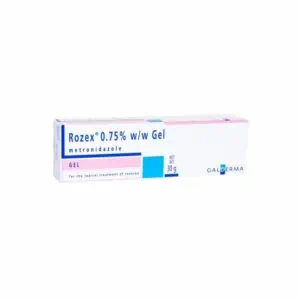
Rozex Cream
What you should know about Rozex Cream (Metronidazole Ph.Eur 0.75% w/w) Please read this leaflet carefully before you start using Rozex Cream. If you follow
